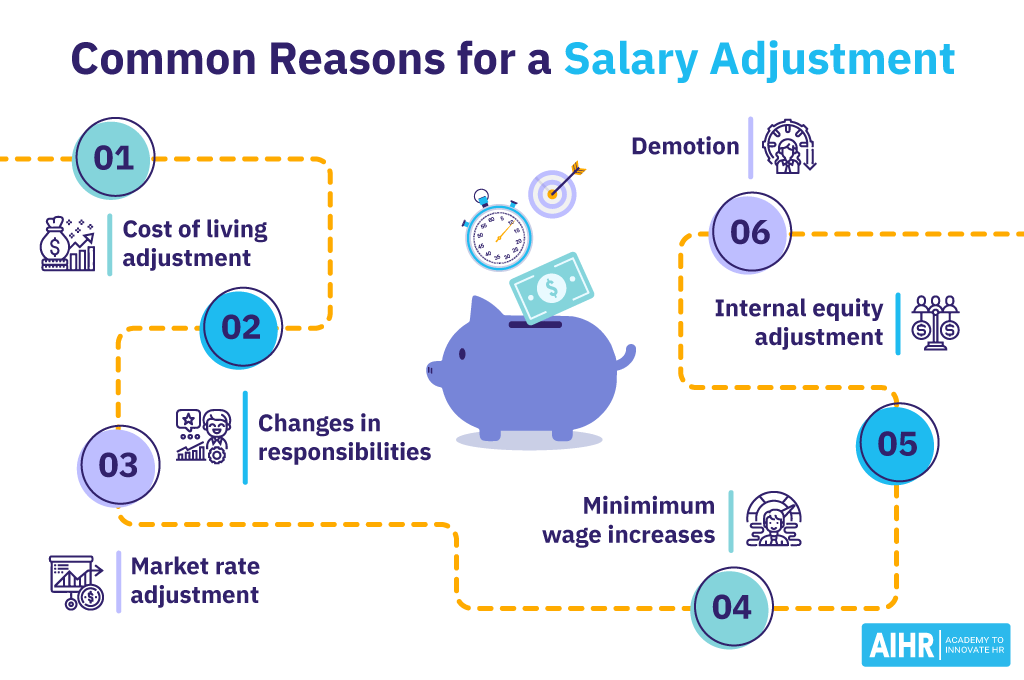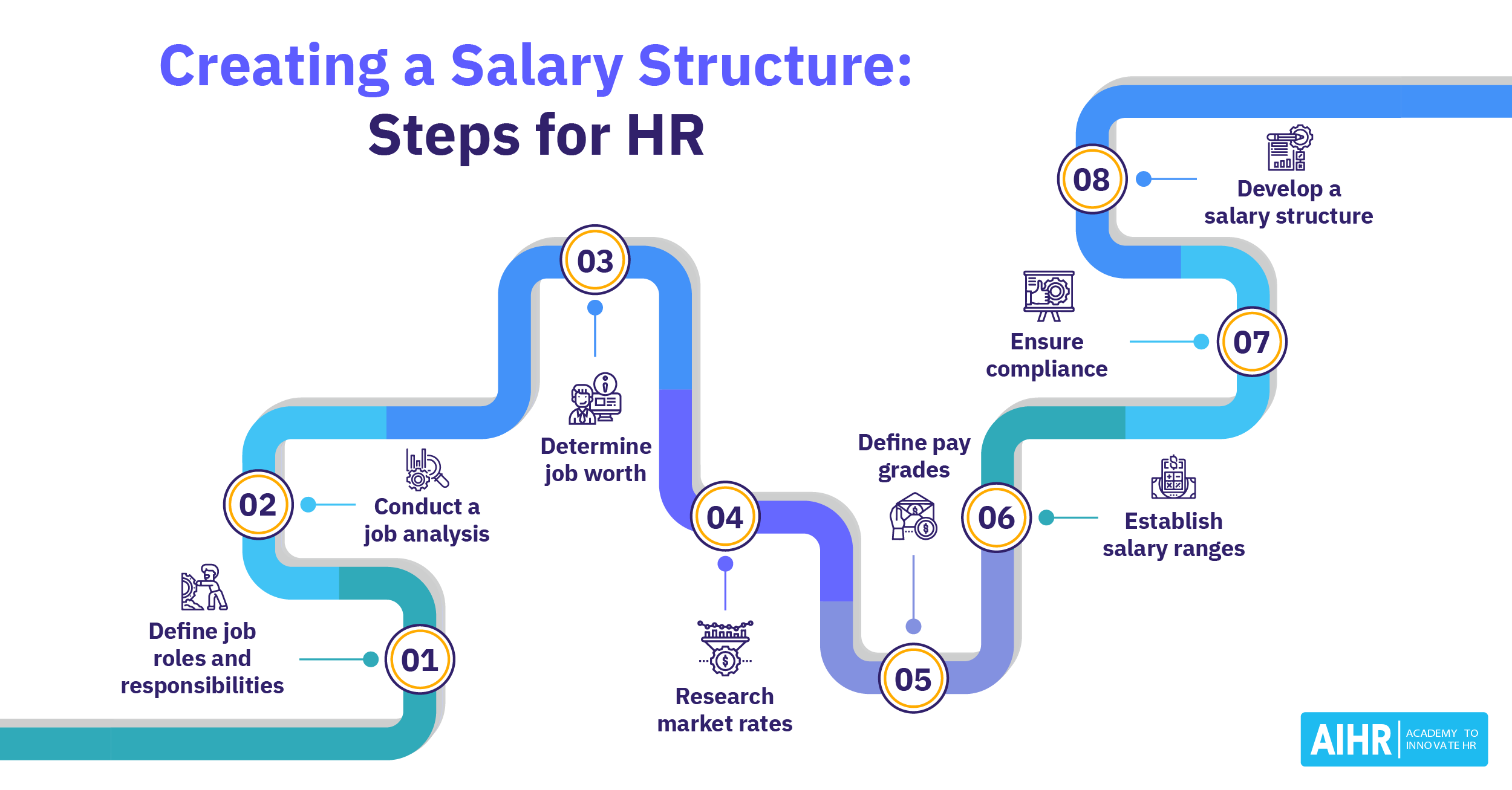Salary Adjustment
What is a salary adjustment?
A salary adjustment refers to a change in an employee’s base pay. This adjustment can either be an increase or a decrease, but it is most commonly associated with an increase. Pay adjustments can result from numerous circumstances, including promotions, market rate adjustments, cost-of-living increases, and more.
Salary adjustment vs. raise
Salary adjustment and raise are terms commonly used in the context of employee compensation, but they refer to different concepts:
| Salary adjustment | Raise |
|---|---|
| Adjusts salary for market conditions, job role changes, or internal equity | Increases salary for performance, longevity, or promotion |
| May not reflect individual performance directly | Directly rewards individual achievement or career progression |
| Can occur without a change in job duties or performance | Often tied to a review of job performance or a specific achievement |
| Aims to ensure fairness and competitiveness within the organization and the market | Aims to motivate and retain employees by recognizing their contributions |
Common reasons for a salary adjustment
A company might feel adjusting an employee’s wages is necessary for numerous reasons:
- Cost of living adjustment: Employers may increase salaries to keep up with inflation, ensuring that employees’ purchasing power remains stable.
- Changes in responsibilities: When an employee’s job duties significantly change (requiring more skill or responsibility), a salary adjustment is typically warranted to reflect these new challenges.
- Market rate adjustment: Employers may adjust salaries to align with the going rate for similar positions in the job market, ensuring competitiveness in attracting and retaining talent.
- Minimum wage increases: When minimum wage laws change at the federal, state, or local level, employers may adjust the salaries of their minimum-wage employees to comply with the new regulations.
- Internal equity adjustment: To address pay disparities among employees with similar roles or to correct historical underpayments, adjustments need to be made to maintain fairness and employee retention.
- Demotion: In the case of a demotion, whether for performance issues or at the employee’s request (e.g., for a better work-life balance), a salary decrease may occur. The adjusted salary typically reflects the responsibilities and requirements of the lower-ranking position.
HR tip
When managing a demotion, ensure clear, sensitive communication. Conduct a thorough evaluation to justify the decision, discuss it privately and respectfully with the employee, and focus on future roles and opportunities. Offer support, such as training, to facilitate a smooth transition.
How to implement a salary adjustment: 6 steps
A salary adjustment, whether an increase or decrease, is always a sensitive matter that should be handled thoughtfully and professionally. Here’s a general outline of how HR can implement a pay adjustment:
- Conduct market research: Gather data on current market salary rates for similar roles in the same industry and geographical location. The aim is to understand where your organization stands in relation to the market and identify positions that may require adjustment.
- Determine the extent of the salary adjustment: Based on the market research findings, analyze internal salary data to identify discrepancies between current salaries and market rates. Consider the financial implications.
- Discuss with relevant leadership and supervisors: Before implementing any changes, discuss the proposed adjustments with senior leadership. This ensures alignment and support from top management.
- Check for inequity and legal implications: HR must ensure that the salary adjustments do not create any internal pay inequities and be aware of and comply with any legal requirements related to wages and equal pay.
- Communicate the salary adjustment to employees: Inform affected employees about the changes in their salaries, explaining the reasons behind the adjustments and how they were determined. This helps in maintaining trust and morale among the workforce.
- Monitor and evaluate the impact: Monitor the impact of the adjustments on employee satisfaction, turnover rates, and recruitment efforts. Evaluate whether the adjustments have achieved the intended objectives and make further modifications if necessary.
FAQ
A salary adjustment is a broad term that describes a change made to an employee’s pay to align with market rates, job responsibilities, or cost of living changes, ensuring competitiveness and fairness. In contrast, a merit increase is a raise explicitly given for an employee’s individual performance and achievements, rewarding their contributions and excellence in their role.
Companies adjust salaries to ensure that their pay rates remain competitive in the market, to retain talent, and to address changes in the cost of living or inflation. Additionally, adjustments can be made to reflect changes in an employee’s role, responsibilities, or performance.









